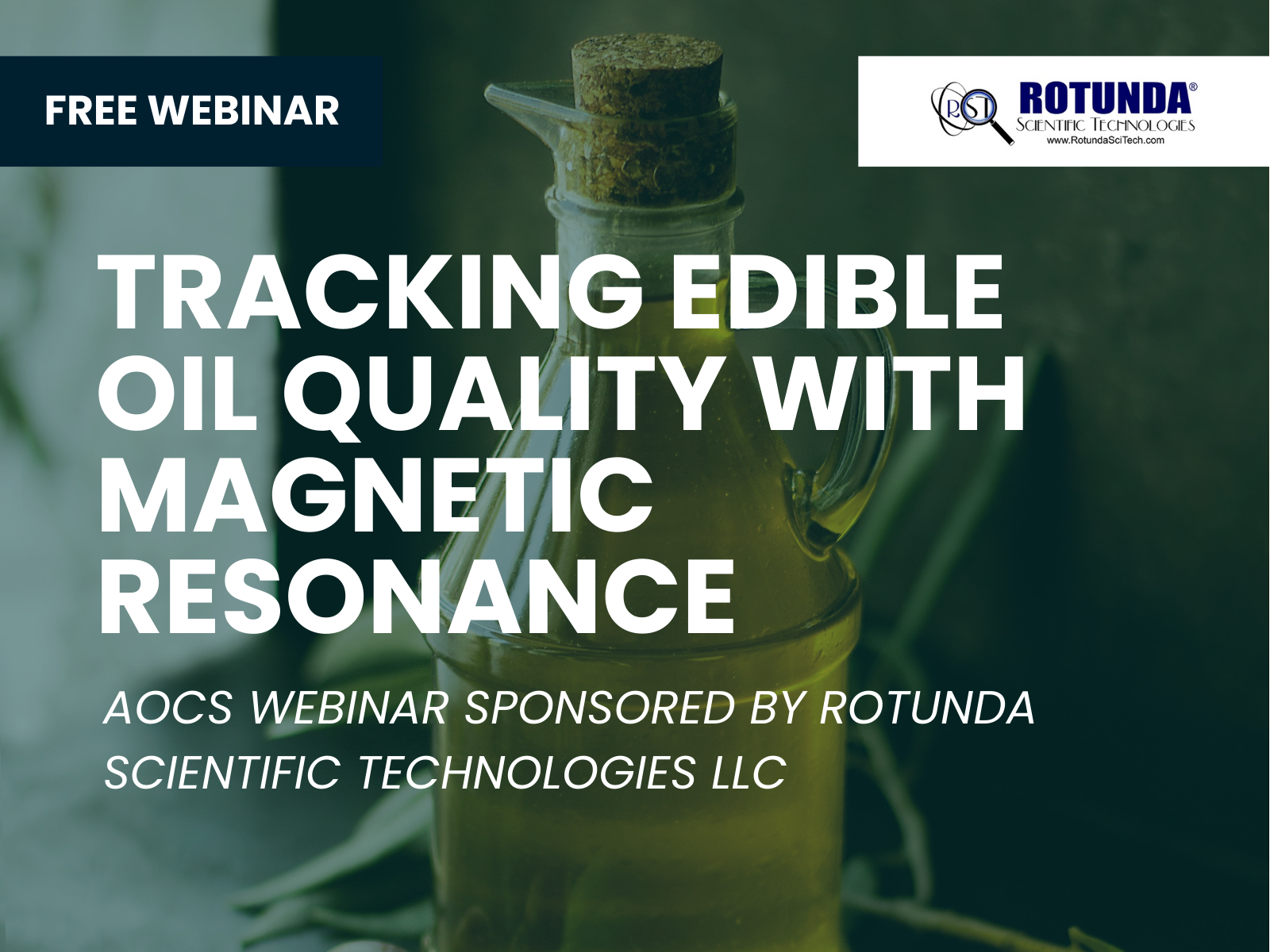
Webinars
February 17, 2026
Rotunda Sponsored Webinar: Tracking Edible Oil Quality with Magnetic Resonance
Free Webinar – Sponsored by Rotunda Scientific Technologies LLC Webinar Description: Join…

Webinars
February 17, 2026
Free Webinar – Sponsored by Rotunda Scientific Technologies LLC Webinar Description: Join…